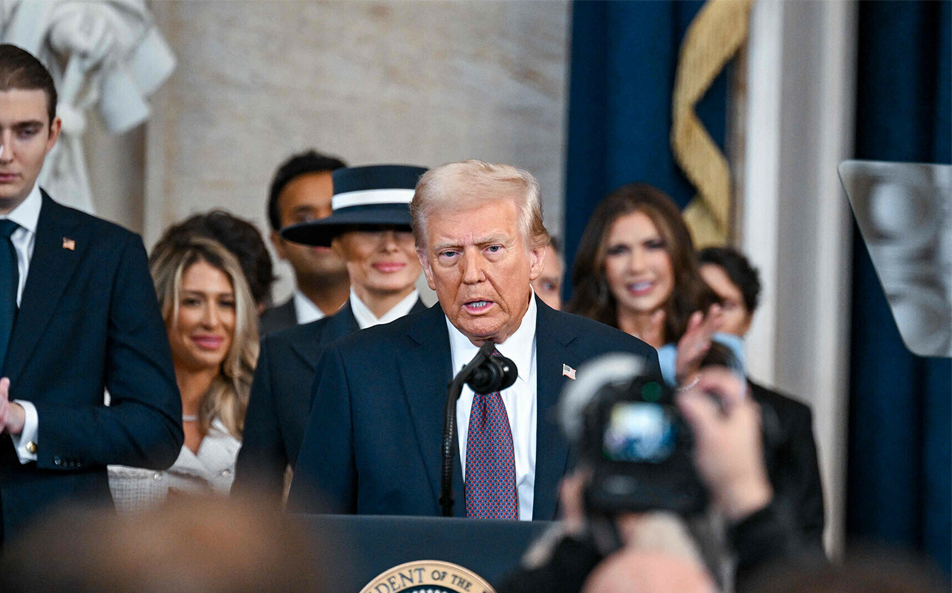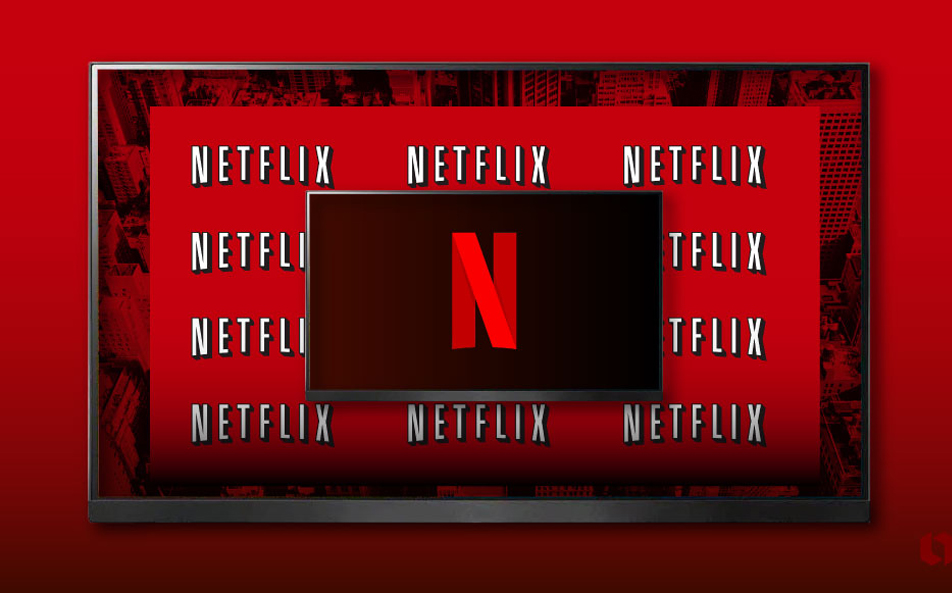
The United Indian

The world watches as Donald Trump makes history yet again, taking office as the 47th President of the United States. Known for his bold policies and unorthodox leadership style, Trump’s return to the Oval Office signals significant shifts in global trade, economics, and diplomacy. With executive orders already in motion to redefine immigration, tariffs, and international relations, his presidency is set to bring both challenges and opportunities for nations worldwide. For India, a country with deep economic and strategic ties to the U.S., the implications of Trump’s leadership could reshape its markets, industries, and policies in profound ways. Let’s explore what lies ahead in this new political chapter.
On Monday, January 20, Republican leader Donald Trump took the oath of office as the 47th president of the United States. He is the first person with a felony conviction to hold the post and the second to serve nonconsecutive terms. At 12:00 pm ET (10:30 pm IST), the inauguration event took place inside the US Capitol building's rotunda. Due to extreme cold, Donald Trump's swearing-in ceremony was abruptly shifted indoors.
Revocating 78 rulings from the former Joe Biden administration was one of US President Donald Trump's first executive orders.
Pardon the 1,500 individuals accused in the January 6, 2021, riot in the US Capitol, give TikTok an additional 75 days to function, and mandate that the US leave the World Health Organization (WHO).
Orders pertaining to birthright citizenship and illegal immigration: US President Donald Trump issued executive orders designating criminal cartels as terrorist organizations, deeming illegal immigration at the US-Mexico border a national emergency, and addressing automatic citizenship for children born to illegal immigrants in the US.
Global markets will probably be affected by Donald Trump's recent election as US president, and India is in a unique position to face both chances and difficulties. Investors must comprehend these dynamics, which range from changes in the USD-INR exchange rate to sectoral effects. The possible impacts on important areas such as currency, bond yields, sectors, and commodities are broken down below, emphasizing the things Indian investors should watch in the upcoming months.
Trump's "America First" Policy & its impact on Indian Trade
Trump's promise to impose a "tariff and tax" trade strategy on other nations has important ramifications for nations like India, which already levies high tariffs on a number of US goods. Trump's "America First" trade policy, which aims to safeguard American families and workers, is the foundation of his position. "A manufacturing nation once again" is what he said his plans will make the United States in his inauguration speech.
India's export industry may be significantly impacted by Trump's reciprocal tariff threat, especially sectors that depend significantly on the US market. Higher entrance barriers may make Indian exporters' goods less competitive in the US market.
1. USD-INR Exchange Rate
Trump's administration has historically prioritized policies that support the expansion of domestic businesses. Expectations of corporate tax cuts and a position on trade protectionism might strengthen the dollar's position against emerging market currencies if a similar strategy is taken this term. A rising currency might make imports more expensive for India and raise inflationary pressures. For Indian exporters, it might also be advantageous because their products might be priced more competitively on the international market. It would be prudent for investors to keep a careful eye on the USD-INR because different sectors may be affected differently by currency movements.
2. Bond Yields and Foreign Institutional Investment (FII) Flows
US bond yields are likely to rise in the event of a Donald Trump victory, particularly if fiscal spending and pro-business measures raise inflation expectations. Higher demand for debt to finance economic growth efforts usually results in higher yields on U.S. bonds, which may attract international capital flows back to the country. Given that greater yields provide investors in the United States with competitive returns, this could result in less foreign investment in Indian markets as capital may be drawn away from developing nations like India. As investors look for greater returns in the United States, this change in FII flows may cause volatility in Indian bond yields and possible withdrawals from Indian stocks.
3. Indian Equity Market: Potential Winners and Challenges
Initially, the Indian equity market can be volatile while policies are developed and FII mood changes. But certain industries stand to gain, while others might encounter difficulties.
Potential Winners
IT Services: Trade conflicts brought on by Trump's "America First" policy, particularly with China, might make India a more attractive secondary location for manufacturing and outsourced services. Given their reliance on US-based clients, Indian IT services companies stand to gain from the ongoing demand for outsourcing.
Pharmaceuticals: The new government may lower existing business margins by capping the cost of necessary, in-demand medications. It is anticipated that this action will only result in a slight decrease in margin and have no effect on overall supply or demand.
Financial Sector: Because of Donald Trump's pro-business policies, the Indian financial sector may be affected by shifts in international capital flows. FII inflows into India may be impacted if a stronger US dollar draws cash back to the US. Higher US bond yields could affect Indian banks and NBFCs by raising borrowing costs abroad. Nonetheless, strong trade ties between the United States and India as well as ongoing economic expansion in the United States may benefit Indian financial services to some degree.
Metals Sector: Higher US bond yields could affect Indian banks and NBFCs by raising borrowing costs abroad. Nonetheless, strong trade ties between the United States and India as well as ongoing economic expansion in the United States may benefit Indian financial services to some degree.
Infrastructure and Real Estate: Donald Trump's initiatives may increase US growth and raise the price of materials globally, which could raise the cost of building in India. However, by taking advantage of advantageous exchange rates, a stronger dollar can entice NRIs to invest in Indian real estate.
Likely Laggards
Automobiles: If Donald Trump as US President raises import levies or reinstates tariffs, the auto industry may encounter difficulties, particularly for Indian manufacturers that depend on US components or have significant export exposure.
A stronger dollar might increase the cost of imports and put additional pressure on Indian automakers' bottom lines.
Renewable Energy: Given Trump's inclination for conventional fossil fuels, there may be less demand for renewable energy technologies, which could slow down international investments in renewable energy. If fossil fuel investments increase globally and eclipse renewable energy initiatives, Indian companies with international renewable energy linkages may lose momentum.
4. Commodities and Bitcoin
Gold: Given Trump's track record of tough trade policies and global unrest, investors may gravitate toward safe-haven assets like gold, which would increase demand and raise its price. Strong gold performance can serve as a hedge for Indian investors, reducing some of the risks connected to stocks during volatile market times.
Bitcoin and Cryptocurrencies: If inflation concerns materialize, his pro-business stance might help Bitcoin inadvertently. However, under his direction, stricter crypto laws might cause market turbulence.
5. Broader Impact on Commodities
Given possible increases in US output and fewer drilling regulations, Trump's concentration on fossil fuels and deregulation may result in higher prices for natural gas and oil globally. This could result in increased oil import prices for India, which would affect industries that depend on petroleum, such aviation and transportation. Conversely, there may be conflicting outcomes for agricultural commodities. Trade disputes with China, for instance, may cause some agricultural exports' prices to fluctuate, which would increase market uncertainty worldwide.
Conclusion
Donald Trump’s presidency marks the beginning of a dynamic and uncertain era, with far-reaching implications for the global economy and geopolitical landscape. For India, navigating these changes will require agility and foresight, particularly in areas like trade, currency stability, and international collaboration. While challenges such as tariffs, a stronger dollar, and shifting FII flows may create headwinds, sectors like IT, pharmaceuticals, and real estate could find unique opportunities to thrive. As the global stage evolves under Trump’s leadership, the key to India’s success lies in embracing adaptability and leveraging its strengths to turn challenges into opportunities.
Trump's plans may cause long-term changes in market dynamics in addition to short-term volatility. To make wise investment choices, Indian investors will need to keep a careful eye on commodity prices, FII flows, and trade trends. Even in times of uncertainty, well-established industries with value-based growth may present compelling prospects for those seeking to strike a balance between risk and growth.
Read more in Recent Events
Jul 09, 2025
TUI Staff
Jul 03, 2025
TUI Staff
Jul 03, 2025
TUI Staff
Jun 29, 2025
TUI Staff

Stay Tuned with The United Indian!
Our news blog is dedicated to sharing valuable and pertinent content for Indian citizens. Our blog news covering a wide range of categories including technology, environment, government & economy ensures that you stay informed about the topics that matter most. Follow The United Indian to never miss out on the latest trending news in India.
©The United Indian 2024












